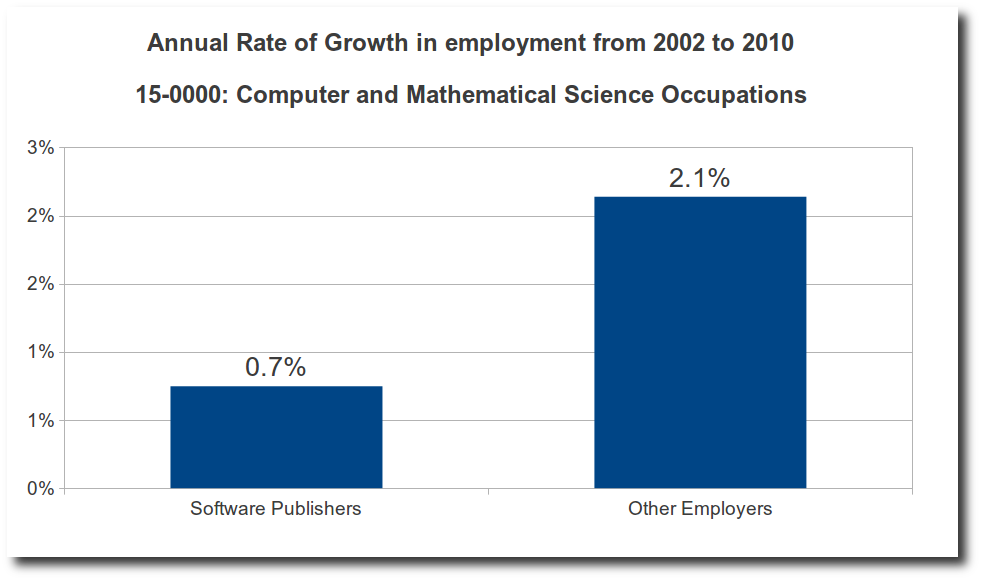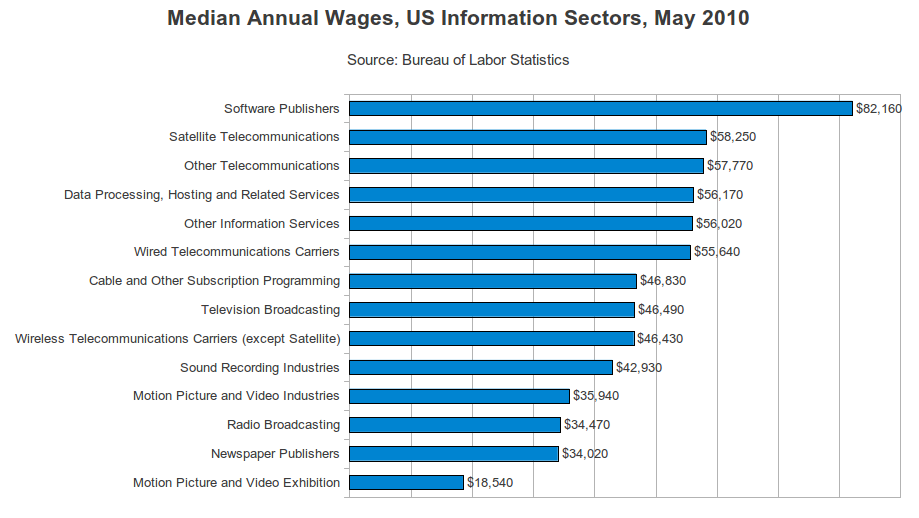Last Friday I purchased a Gateway FX6860 tower computer. It came with 8 gb of DDR3 ram (The maximum is 16 gb), a 1.5 tb drive of unknown make or speed, an n-wireless device, an AMD Radeon 6750 video card with 1 gb of video memory, and an Intel i-7 2600 CPU. It has been a while since I bought new computer for my own use, and I wanted something fast. Read the rest of this entry »
Posted
July 4th, 2011 in Computers and Software
|
Comments Off on My Gateway FX6860
On July 3, 2011, I searched the USPTO database patents issued from 1995 to 2010 that mention the word cancer in the specification field. There were a total of 81,062 such patents. Then I narrowed the search to find out how many patents have at least one inventor (there are often multiple inventors). who was listed as a resident of a country other than the U.S. The number of patents by country of the inventor are reported in figure 1. Read the rest of this entry »
Posted
July 4th, 2011 in Intellectual Property
|
Comments Off on Country of inventor and assignee, for USPTO issued patents mentioning cancer
Like others, I recently found myself struggling to use the LibreOffice program “base” to do database calculations, when it was running on a Linux OS (in my case, Ubuntu 11.04). The main issue was the fact that the problem took ridiculous amounts of time to do just about anything. The problem is not evident on a Mac, and apparently not on Windows either.
Apparently this is a JAVA issue. Specifically, you need to tell the Linux version of OpenOffice/LibreOffice to use an older run time version of Java, or it just will not work right.
I found a good solution to the problem in this forum. Read the rest of this entry »
Posted
June 30th, 2011 in Computers and Software
|
Comments Off on Fix for super slow LibreOffice base (database) using Ubuntu linux
This is the May to August schedule for the USPTO’s Global Intellectual Property Academy (GIPA).
http://www.uspto.gov/ip/training/schedule.jsp#heading-8
Among the countries mentioned in the schedule are Ghana, Indonesia, Iraq, Japan, Kenya, Liberia, Lithuania, Malaysia, Nigeria, Philippines, Russia, Thailand, Ukraine and Vietnam. However, many of these events are regional or topical meetings that include officials from many other countries. The costs of these operations have to be fairly substantial. Read the rest of this entry »
Posted
June 29th, 2011 in Intellectual Property
|
Comments Off on USPTO’s summer indoctrination programs for intellectual property officials
(Update: Note that the NIH Report database key word searches report grants, and some patents are associated with more than one grant. This is true for all search terms listed below.
As part of a larger research project involving the role of government funded research, I was doing some counts of grants and patents associated with those grants, using the NIH RePort database.
The counts reported below are from searches on June 29, 2011.
Not surprisingly, if you have a disease, there are advantages to having one with a large patient population, and at least equal prevalence in high income countries.
I have also calculated the ratio of the patents to the number of grants, expressed below as a percent, in parenthesis after the number of patents. The unweighted mean and median were 4.8 and 4.1 percent, with a range of 0 to 12.3 percent, and a standard deviation of 2.77 percent. The tendency for grant recipients to obtain patents does not seem to differ much between Type I, II or III diseases — a classification used by the World Health Organization to indicate how the global incidence of the disease relates to national incomes. Read the rest of this entry »
Posted
June 29th, 2011 in Medical Technologies
|
Comments Off on NIH funded grants and patents for selected diseases or technologies
Manon Ress on KEI rejection of OECD Statement on the “Principles of Internet Policy Making.”
Posted
June 29th, 2011 in Politics, Technology
|
Comments Off on Manon Ress on OECD Statement on the “Principles of Internet Policy Making
Bill Gates is listed as an inventor of United States Patent, 7930197, issued April 19, 2011, for “Personal data mining.”
What did Bill Gates claim to have invented regarding data mining? According to the patent Abstract: Read the rest of this entry »
Posted
June 28th, 2011 in Computers and Software
|
Comments Off on Bill Gates patent on “personal data mining”
Another data point to suggest U.S. trade officials may be focusing on the wrong industries with regard to global norms for intellectual property.

Posted
June 28th, 2011 in Economics
|
Comments Off on US job growth for computer professionals is lower for Software Publishers than elsewhere
The availability of free software platforms may be more important to the economy than some U.S. policy makers acknowledge or appreciate.
Software publishers employ only 4 percent of the BLS defined category for “Computer and Mathematical Occupations,” and just 4.9 percent of occupation code for computer programmers. In the BLS category for “Software Developers, Applications,” just 8.1 percent work in the “Software Publishing” sector. This suggests the role of commercial software applications is only a relatively small element of value added work involving software.
Occupational Employment and Wages, May 2010
| BLS Occupation Code |
Software Publishers |
Other Employers |
Total Employment |
Percent working for Software Publishers |
| 15-0000 Computer and Mathematical Occupations (Major Group) |
129940 |
3154010 |
3283950 |
4.0% |
| 15-1131 Computer Programmers |
16420 |
317200 |
333620 |
4.9% |
| 15-1132 Software Developers, Applications |
40300 |
458980 |
499280 |
8.1% |
| 15-1133 Software Developers, Systems Software |
25240 |
353680 |
378920 |
6.7% |
| 15-1111 Computer and Information Research Scientists |
1470 |
23430 |
24900 |
5.9% |
| 15-1121 Computer Systems Analysts |
8330 |
487470 |
495800 |
1.7% |
Posted
June 26th, 2011 in Economics
|
Comments Off on Software publishers employ a small fraction of software programmers and engineers
The following are BLS estimates of the changes in output per person and employment in the United States for 13 4-digit NAICS information industry sectors.

See too: U.S. employment and wages in 14 information sectors, which suggests U.S. trade policy on intellectual property rights in the information sector favors lower wage industries over higher wage industry, and includes this graphic:

Posted
June 26th, 2011 in Economics
|
Comments Off on Changes in productivity and employment in 13 information sectors


